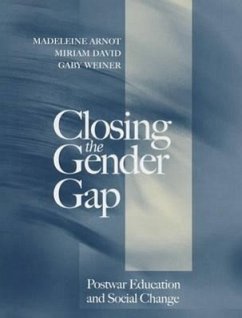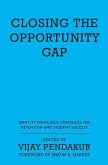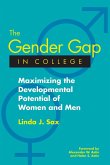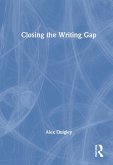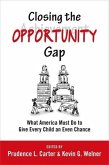The education gender gap is closing. Since the 1980s examination results have changed dramatically, as girls have "caught up" and, in some cases, overtaken boys. Through an analysis of the postwar transformation in British economic, social and cultural life, this important book provides valuable insights into how and why this unprecedented change has taken place. In particular, the book focuses on the welfare state and the education reforms under Margaret Thatcher which encouraged this momentum for change despite her personal efforts to re-instil Victorian educational values. These reforms, the authors argue, coupled with the women's movement, re-shaped girls' and boys' identities and educational choices irrevocably, but not necessarily in the same or complementary ways. Closing the Gender Gap will be essential reading for undergraduate and postgraduate students in education, sociology and gender studies.
Hinweis: Dieser Artikel kann nur an eine deutsche Lieferadresse ausgeliefert werden.
Hinweis: Dieser Artikel kann nur an eine deutsche Lieferadresse ausgeliefert werden.
"This book is an excellent read and I have no doubt that it will become a standard text in the sociology of education. It represents the first attempt at explaining the closing gender gap (if not the emergence of a new one!) in terms of the wider social, political, cultural and economic changes in the 1980s and 1990s." Phillip Brown, School of Social and Administrative Studies, University of Wales, Cardiff
" There are 3 main reasons why this book is worth reading many times and from different perspectives. The first is that it brings together the long-term scholarship of three of England s leading feminist scholars in education. The second is that it is an important knowledge-based intervention in an educational debate which has claimed a high profile in media and education policy circles over the 1990s and into the 2000s. The third reason is that the book s lines of argument are conceptually and empircally rich and its conclusions provocative." British Educational Research Journal
" There are 3 main reasons why this book is worth reading many times and from different perspectives. The first is that it brings together the long-term scholarship of three of England s leading feminist scholars in education. The second is that it is an important knowledge-based intervention in an educational debate which has claimed a high profile in media and education policy circles over the 1990s and into the 2000s. The third reason is that the book s lines of argument are conceptually and empircally rich and its conclusions provocative." British Educational Research Journal

